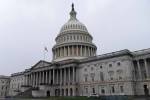Privileges or immunities: a fancy way to say ‘rights’
Somewhere along the way we've devolved from a society of people free to exercise our nearly unlimited rights to one in which every act and utterance requires a government permit, license or inspection -- along with a tax, fee or fine.
Get a job, gather in a public park, drive, speak on a public sidewalk, sell vegetables from a stall, build on your property or carry a gun -- you must meekly go stand in line and obtain paperwork from a government functionary.
What has changed?
The phrase "privileges and immunities" appeared in the Articles of Confederation, according to Seth Lipsky's book "The Citizen's Constitution," but extended only to "free white inhabitants." It shows up again in our operator's manual under Article IV, Section 2: "The Citizens of each state shall be entitled to all Privileges and Immunities of Citizens of the several states."
But, as Lipsky notes, this did not apply to a free black citizen of Massachusetts traveling in the South. A memo spelling out this distinction was written by Andrew Jackson's attorney general, Roger Taney. It was Taney who, as a Supreme Court justice, penned the Dred Scott decision, putting the country on the path to civil war.
The Civil War gave us the 14th Amendment and its declaration: "No State shall make or enforce any law which shall abridge the privileges or immunities of citizens of the United States, nor shall any State deprive any person of life, liberty, or property, without due process."
A mere five years later the high court again gutted "privileges and immunities" in the Slaughterhouse Cases. Louisiana set up state-run butcher shops and prohibited all others from working as butchers -- thus denying the right to engage in a specific occupation.
The court ruled the 14th Amendment applied to citizens of the nation but not to citizens of the various states.
"It is quite clear, then, that there is a citizenship of the United States, and a citizenship of a State, which are distinct from each other, and which depend upon different characteristics or circumstances in the individual," the court ruled.
Though the 14th Amendment was written specifically to ensure the Bill of Rights applied to the states, so freed blacks could not be denied them, the ruling turned legislative intent on its head.
For 137 years, the Privileges and Immunities Clause has lain fallow. When the 14th has been invoked, it has been with the Due Process Clause.
That's what happened in June, when the high court ruled 5-4 that Chicago could not prohibit possession of guns. Four of the majority cited the Due Process Clause, but Justice Clarence Thomas, while agreeing with the outcome, wrote a concurrence plowing up the Privileges and Immunities Clause.
Thomas lambasted the plurality for its weak-kneed stance.
"All of this is a legal fiction," he declared. "The notion that a constitutional provision that guarantees only 'process' before a person is deprived of life, liberty, or property could define the substance of those rights strains credulity for even the most casual user of words. Moreover, this fiction is a particularly dangerous one."
Thomas explained that the phrase privileges and immunities, as used at the time, had the precise same meaning as rights and liberties.
"In my view, the record makes plain that the Framers of the Privileges or Immunities Clause and the ratifying-era public understood -- just as the Framers of the Second Amendment did -- that the right to keep and bear arms was essential to the preservation of liberty," Thomas wrote. "The record makes equally plain that they deemed this right necessary to include in the minimum baseline of federal rights that the Privileges or Immunities Clause established in the wake of the War over slavery."
People should assert their rights, enumerated and unenumerated, to engage in commerce, to travel, to work at a profession without having to have the imprimatur of some bureaucrat's due process by doling out work cards, health cards, licenses, permits and charters.
Rights belong to the individual. They are not meted out by the stingy hand of our lords and masters at City Hall.
Thomas Mitchell is editor of the Review-Journal and writes on the role of the press and constitutional rights. He may be contacted at 383-0261 or via e-mail at tmitchell@reviewjournal.com. Read his blog at lvrj.com/blogs/mitchell.























